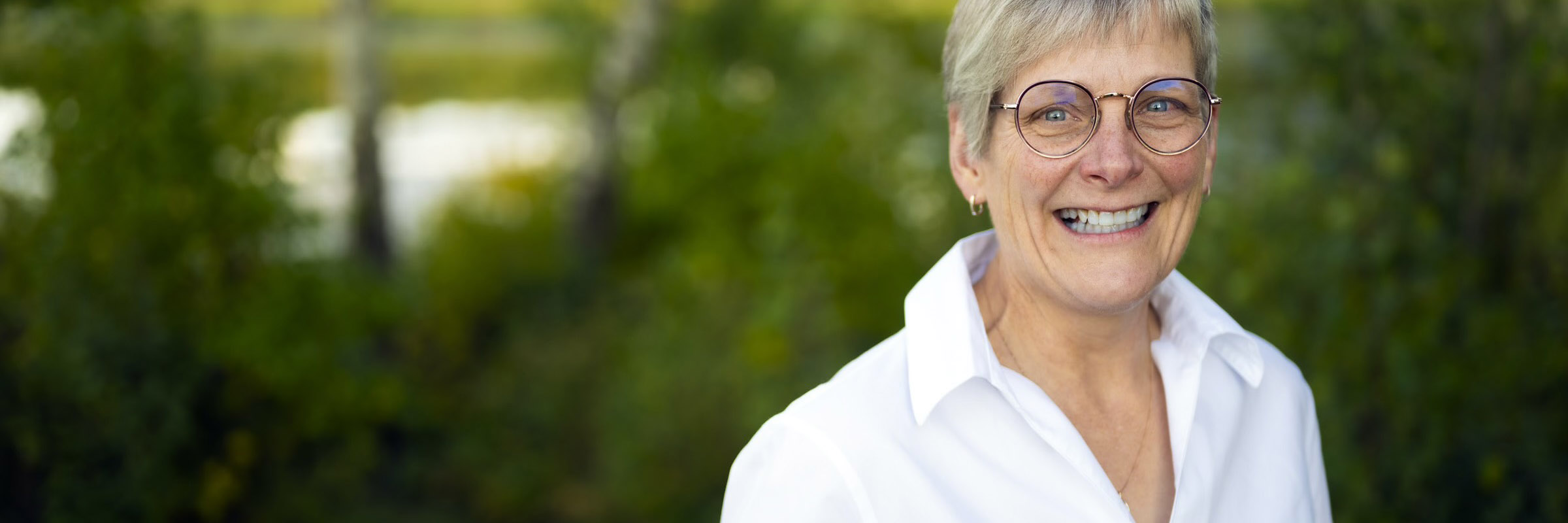Dee Patriquin named 2023 Citation Award recipient
Jordan Whitehouse - 18 September 2023

Dee Patriquin, ’87 BSc(Spec), ’91 MSc, ’14 PhD, knows a thing or two about how to work with others — especially when it comes to solving big environmental problems. It’s one of the reasons she is this year’s recipient of the Alumni Citation Award — an Augustana Alumni Award given to a non-Augustana grad in recognition of their significant contributions to the life of the campus.
For over 30 years, the environmental scientist and consultant has collaborated with people from diverse disciplines to find answers to some of the big environmental challenges facing our society. Whether in her current role as district environmental manager with Flatiron Constructors Canada or in past projects like those involving government and oil and gas partners, Patriquin has had a similar goal: Getting people to work together — some of whom might have vastly different views about how things should unfold.
It’s a skill she has put to good use at Augustana both in and out of the classroom. Though Patriquin didn’t study on campus, she has enriched the lives of students and community members through her teaching and volunteer efforts. Whether working on initiatives like the Beaver Hills Biosphere or the PromoScience Program, or teaching and mentoring students in environmental science and beyond, collaboration has been at the heart of it all.
The roots of Patriquin’s environmental calling go back to her early years growing up on a farm northeast of Edmonton. “I loved being outdoors and just exploring,” she says. “We had a big lake and a cormorant colony, and my mom was really into birds. So that all sparked an interest in observing the natural world.” Making cooperation in the field her mission, however, grew out of necessity.
She says the biggest challenge in getting people to collaborate is establishing trust between them. And that can only happen when you make space for people to actually listen to each other, she says.
“You can’t just be exchanging paper back and forth,” she says. “You have to create a setting that allows them to talk about the problem from all those different perspectives and ask the questions that come up. That all takes time, but you have to let it happen.”
Collaboration isn’t always straightforward to teach, however, she says. Especially when it comes to sensitive topics like the environment. In the classroom she used case studies from her own experience and group projects to encourage students to work together to find solutions.
“I’ve had some students say that a professor told them that a certain discipline can solve everything,” she says. “Overcoming that bias and building the realization that everybody has a role to play in solving these complex environmental problems is really critical.”